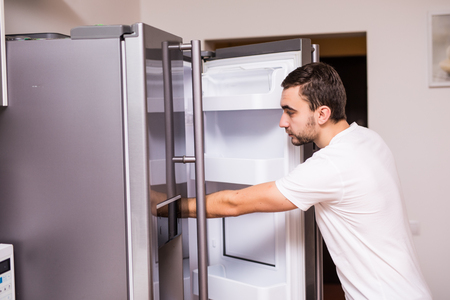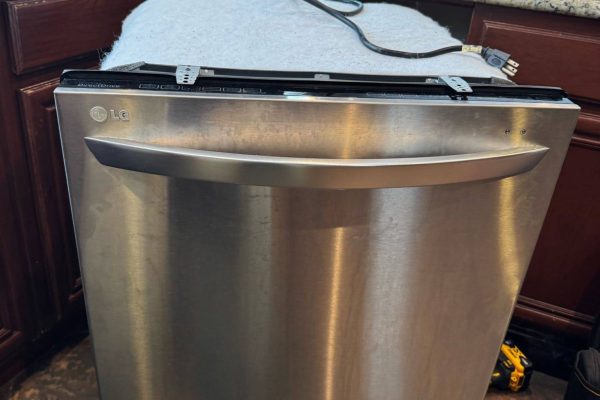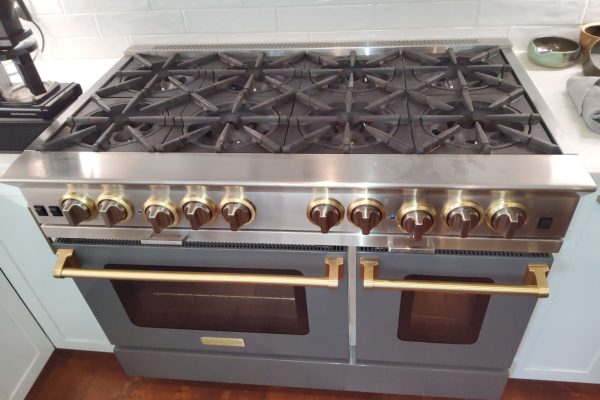A refrigerator is vital in any home, working tirelessly to keep your food fresh and your beverages cold. At the heart of this essential kitchen appliance is the compressor, a critical component responsible for cooling the refrigerator. When the compressor malfunctions, it can lead to temperature fluctuations, spoiled food, and potentially costly repairs. In this article, we’ll delve into the workings of a refrigerator compressor, common signs of compressor issues, and steps for troubleshooting the problem.
The Role of the Compressor
Before diving into the issues, let’s understand the role of the compressor in a refrigerator. The compressor is essentially the refrigerator’s “heart.” It works by compressing a refrigerant gas, usually a type of Freon, which then circulates through a closed system of coils. As the gas is compressed, it becomes hot and releases heat outside the refrigerator, causing the interior temperature to drop. This cycle of compression and expansion keeps your fridge cool and your food fresh.
Signs of Compressor Problems
- Temperature Fluctuations: One of the primary signs of a compressor issue is the inconsistent temperature inside the refrigerator. You may notice that your fridge is not as cold as it should be, and food might spoil prematurely. On the other hand, the freezer could become excessively cold.
- Unusual Noises: Compressors typically make a low humming sound while operating. However, if you start hearing loud or unusual noises like clanking, banging, or clicking, it could indicate a problem. These sounds are often linked to a malfunctioning compressor motor or its internal components.
- Excessive Heat: While the compressor itself generates heat during its normal operation if you notice that the sides or rear of the refrigerator are unusually hot to the touch, it could be a sign that the compressor is overworking or not dissipating heat effectively.
- Frequent Cycling: If your refrigerator’s compressor is continually turning on and off in short cycles, it may indicate a problem. This rapid cycling, known as short cycling, can result from various compressor issues.
- Visible Leaks: Sometimes, refrigerant leaks can occur due to a damaged compressor or its connecting pipes. If you notice any oily or greasy residue near the compressor or refrigerant lines, it’s a red flag.
- Complete Silence: In some cases, the compressor may stop working altogether, resulting in complete silence. This is a severe issue that needs immediate attention.
Troubleshooting Compressor Problems
If you suspect your refrigerator’s compressor is not working correctly, here are steps to troubleshoot the issue:
- Check the Power: Ensure the refrigerator is properly plugged in and receiving power. Sometimes, the problem can be as simple as a loose plug or tripped circuit breaker.
- Temperature Settings: Confirm that the temperature settings inside the fridge and freezer are correctly adjusted. Incorrect settings can make it seem like the compressor is malfunctioning.
- Clean the Condenser Coils: Over time, dust and debris can accumulate on the condenser coils, hindering heat dissipation and causing the compressor to overheat. Regularly clean the coils located at the back or underneath the fridge.
- Inspect the Fans: Refrigerators have fans that help circulate air and cool the compressor. Ensure these fans are running correctly. A malfunctioning fan can lead to compressor issues.
- Listen for Unusual Noises: Pay attention to any unusual sounds from the compressor area. If you hear clicking or clanking noises, it’s best to call a technician for further inspection.
- Temperature Test: Use a thermometer to measure the temperature inside the refrigerator and freezer compartments. This will help you determine if the compressor is cooling properly.
When to Seek Professional Help
While some minor issues can be resolved through troubleshooting, compressor problems often require the expertise of a professional technician. If you observe any of the following signs, it’s advisable to contact a refrigerator repair specialist:
- Visible Refrigerant Leaks: Refrigerants are hazardous to handle and should only be addressed by a certified technician.
- Complete Silence: If the compressor is entirely silent, it clearly indicates a significant problem that needs immediate attention.
- Frequent Short Cycling: Rapid cycling is a complex issue that may involve electrical or mechanical problems with the compressor.
- Unusual Noises Persist: If loud or unusual noises continue after basic troubleshooting, it could signify a compressor or motor issue.
- Excessive Heat: If the compressor area becomes exceedingly hot, it may be an indication of an impending failure.
Preventing Compressor Issues
Preventive maintenance can go a long way in extending the life of your refrigerator’s compressor. Here are some tips to help you avoid compressor problems:
- Keep the Coils Clean: Regularly clean the condenser coils to ensure proper heat dissipation.
- Maintain Proper Ventilation: Ensure that your refrigerator has enough space around it for adequate airflow. Crowding the appliance can cause it to overheat.
- Avoid Overloading: Don’t overload your refrigerator or freezer, as this can strain the compressor.
- Check Seals and Gaskets: Ensure that the door seals and gaskets are in good condition to maintain an airtight seal, preventing the compressor from overworking.
- Regular Professional Maintenance: Consider scheduling annual maintenance checks with a qualified technician to detect and address potential issues early.
In conclusion, the compressor is a critical component of your refrigerator, and its proper functioning is essential for maintaining food freshness. Being vigilant about signs of compressor problems and performing routine maintenance can help ensure that your refrigerator runs efficiently and keeps your food at the right temperature. If you encounter any major issues, it’s best to seek the assistance of a professional technician to diagnose and repair the problem. Remember, a well-maintained compressor can extend the lifespan of your refrigerator and save you money on repairs and energy costs in the long run.
If nothing else is working, it’s time to call in the professionals – Oceanside Appliance Service Center is here to help! Our technicians are all experienced and certified in refrigerator maintenance and repair, including ice maker repair. We offer great deals, like fair prices, a guarantee on the job, friendly and attentive service, and efficiency. Don’t wait – get your fridge fixed today!
Contact us


